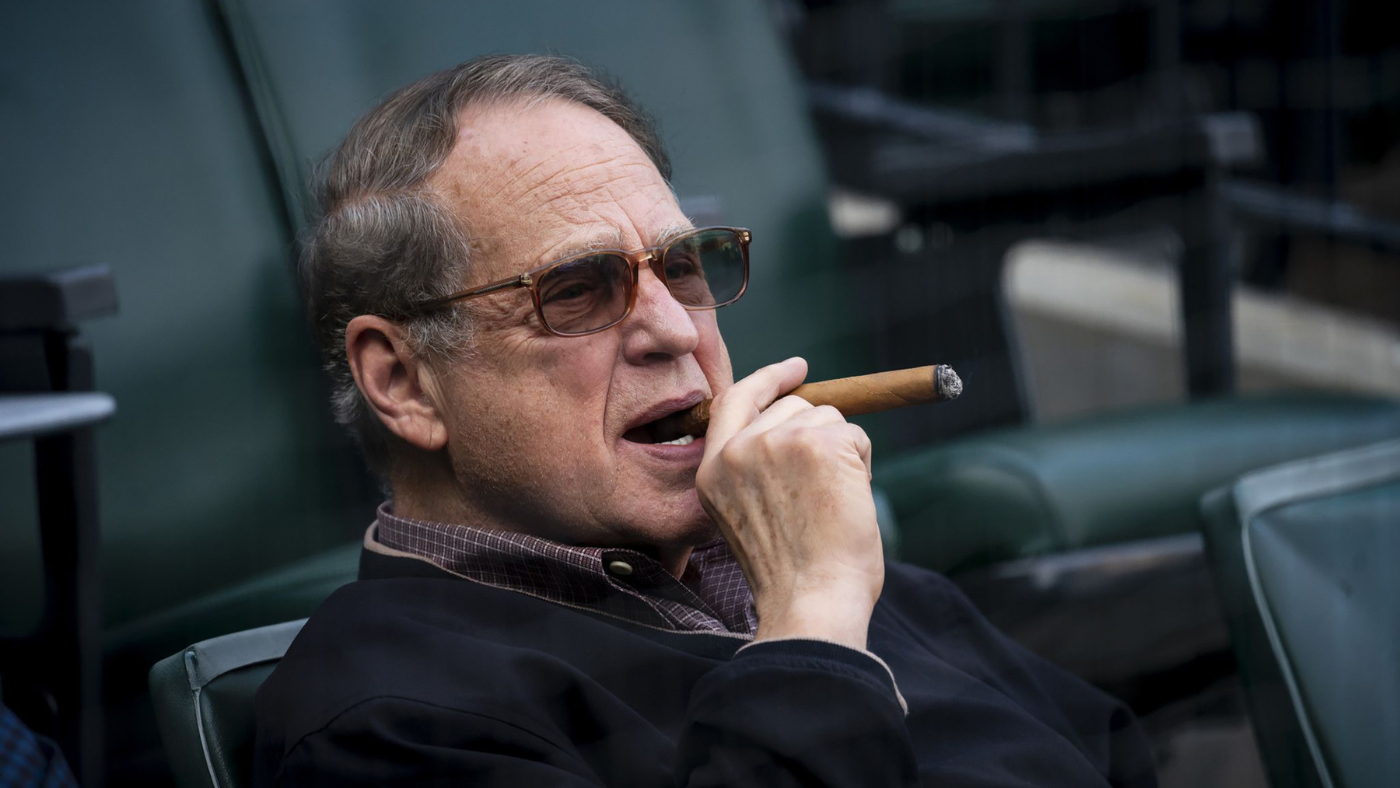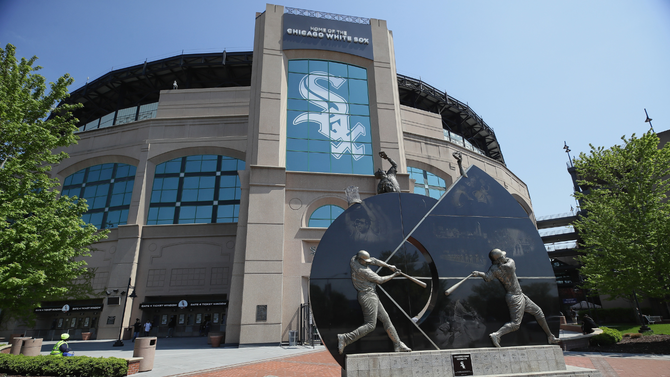Jerry Reinsdorf keeps failing the White Sox: Forty years of ownership and almost nothing to show for it
Written by CBS SPORTS ALL RIGHTS RESERVED on August 21, 2024

Jerry Reinsdorf has been the controlling owner of the Chicago White Sox since he bought the club from Bill Veeck in January of 1981 for $20 million. That marathon-length term of more than 40 years makes Reinsdorf the longest-tenured owner in Major League Baseball. At age 88, he’s also the oldest of his guild. As such, he’s seen a thing or two regarding a thing or two when it comes to this, our baseball. Until now, though, he hasn’t seen depths such as the ones the White Sox are presently enduring. By the time the season is over, it’s possible no one will have glimpsed such a thing as the 2024 White Sox.
That’s because the White Sox are bound headlong for the most losses in a season across the entirety of modern major-league history. The Sox have already tied the American League record with 21 consecutive losses, and that’s positioned them nicely to break the modern record of 120 losses held by the 1962 New York Mets. At the present juncture, the White Sox are on pace for 124 losses (and 38 wins!), which means they’re on a record pace with some room to spare.
We’ve already seen some accountability accrue upward for what’s befallen the Pale Hose in 2024 and across recent history. In August of last year, as the Sox closed in on their worst season since 1970, Reinsdorf dismissed his two lead decision-makers on the baseball ops side, long-time team vice president Ken Williams and general manager Rick Hahn. Williams had been atop that particular organization chart since 2000, and Hahn had been in the GM’s chair for more than a decade. More recently, the Sox dismissed manager Pedro Grifol after he amassed a record of 89-192 across one full season and most of another. That’s a notable body count in less than a year, and it reflects the abyss the club has reached.
Unfortunately for those who care about the team’s fortunes, things aren’t going to get meaningfully better for some time. While the moves made by GM Chris Getz have no doubt improved the young talent base, it’s still not an elite farm system. It’s also going to be a while before all the young talent trickles into the majors, and there are so many glaring holes to fill that it’s hard to project relevance for the White Sox over the next handful of seasons. The 2025 season probably won’t be as humiliating as the current one – how could it be – but it will still be ugly.
Reinsdorf is of course not being subjected to any of that aforementioned accountability. That’s how it goes with owners. Yes, the buck stops with them but so do the consequences. That’s especially the case these days. Teams have so many guaranteed income streams that they enjoy just by virtue of existing that they can still achieve profitability even if the turnstiles aren’t clicking and the parking passes and concessions aren’t being purchased. All of it breeds a state of indolence and assumption on the part of the ownership class – a demographic already predisposed toward such flaws. That’s evident in Reinsdorf.
While Reinsdorf’s legacy as a controlling owner is not yet engraved in permanence, it’s close to being so, which means assessments of his tenure are not premature. Survey his more than four decades helming the White Sox and you find failure, a foundational lie, and cynicism as a guiding principle.
First, Reinsdorf’s failures merit brief exploration. Since Reinsdorf’s first season in charge in 1981, the White Sox are a cumulative 56 games under .500. In his 44 seasons, they’ve managed just seven postseason berths, or one every 6.3 years. Yes, the White Sox won the World Series in 2005, but given how long Reinsdorf has been in charge, that’s not much of a distinction (losing more than 120 games in a single season certainly is).
Over that same span of 43-plus years, just six teams – the Milwaukee Brewers, Cleveland Guardians, Seattle Mariners, San Diego Padres, Pittsburgh Pirates, and Tampa Bay Rays – have failed to win the World Series at least once. In the Rays’ case, they’ve been around only since 1998, so it’s not a direct comparison. Cleveland, the Padres, and the Rays have each won more pennants than the White Sox have on Reinsdorf’s watch. A total of 11 teams, including the expansion Miami Marlins, have won the World Series more than once during Reinsdorf’s time. Let’s note that the Brewers, Guardians, and Padres, and perhaps Mariners, are poised to be in this year’s playoff field, so that title-less ledger may be reduced by one.
As well, that 2005 White Sox team ranked a middling 13th in Opening Day payroll, so it’s not as though their charge to the belt and title was driven by Reinsdorf’s roster investments. In related matters, the White Sox and John Fisher’s Oakland A’s are the lone two clubs never to sign a player to a contract worth at least $100 million. This information isn’t all that surprising in light of one of Reinsdorf’s recurring complaints. As recently as May of last year, Reinsdorf at a sports business conference dragged this one howling from the vaults:
“[Sports] is different than any other business. For example, your competitors are your partners. You earn probably half of your income in conjunction with your competitors. At the same time, you are at the mercy of your dumbest competitors.
“Particularly in baseball. If you have somebody who decides he wants to spend $42 million on a second baseman who hits .202, and one comes along for you, you’re going to probably have to spend the same money. The whole thing is irrational.”
He’s offered up variations on this “point” multiple times over the years, so it’s clear he’s impressed by his own insight. Really, though, you can only find this curious mix of entitlement and ignorance from someone who’s a bit too comfortable operating as part of a legally sanctioned cartel. The cost of something, a player in this instance, being determined in large measure by the demand for that something is how things are for, oh, almost everyone who doesn’t own an MLB franchise. Reinsdorf, though, has been in an affronted state for years over a principle that’s covered on the first day of any survey business or economics course. Never mind that no one is being forced to pay this second baseman of Reinsdorf’s imagination. Also never mind that $42 million simply isn’t very much money as MLB free agents go.
Reinsdorf across his decades in the game has also been a hardline “hawk” among owners when it comes to dealings with the Players Association, and it’s no stretch to say he and his philosophical ilk bear significant responsibility for the labor stoppages that have harmed the game over the years and the collusion fiasco that cost the league hundreds of millions of dollars in legal judgments. So of course he hates spending money to improve the on-field product.
The White Sox under Reinsdorf have also failed to capitalize on their shared place in the third-largest market in the United States. Much of that flows from Reinsdorf’s insistence on building, at immense public expense, a suburban-style ballpark in the middle of a high-density major city. What is now called Guaranteed Rate Field became outmoded soon after it opened in 1991 thanks to the retro ballpark boom ushered in by Camden Yards in Baltimore. That alone would be a condemnable lack of foresight on Reinsdorf’s part, but worse still is that he was presented with detailed and actionable plans for a ballpark that would’ve made White Sox home games a true destination and very likely changed the course of franchise history. That the Chicago Cubs are, per Forbes valuations, worth more than twice as much as the White Sox isn’t reducible to any one cause. However, such a deficit between teams that share the same city and subway/elevated-train line is in the end inexplicable and reflects Reinsdorf’s undistinguished stewardship. Unfair comparison? Not at all. The Tribune Company bought the Cubs in the summer of 1981 for roughly the same price Reinsdorf paid for the White Sox months earlier. You’re invited to follow the arc of the two clubs from there.
Reinsdorf’s decision-making has also been similarly dubious in more recent years. The decision to part ways with manager Rick Renteria and replace him with the aging Tony La Russa remains a bizarre one, and it’s possible to argue that the team’s decline in La Russa’s final season as manager in 2022 marks the onset of what now afflicts the franchise. It was on Reinsdorf’s watch that beloved broadcaster Jason Benetti departed for the division-rival Detroit Tigers, possibly under ugly circumstances, and it was presumably Reinsdorf who approved as Benetti’s replacement an uncritical cheerleader of a replacement whose grasp of the moment is such:
Then there’s what’s unfolded in the front office. Reinsdorf’s animating principle when it comes to hiring decisions has always seemed less driven by merit than by a desire to elevate people he likes. That explains the La Russa hire to some extent, the tidal reliability of Ozzie Guillen rumors, and the drawn-out tenures of Williams and Hahn. It also probably explains the thinking behind the promotion of Chris Getz to GM.
When Williams and Hahn were at last let go, the team statement noted that the White Sox planned to hire a “single decision maker to lead the baseball operations department” and that they anticipated making this hire before the end of the season. In reality, it took barely more than a week for Getz at age 39 to be named that single decision maker as GM and vice president. What was ahead and already underway – something on the order of 225 losses across two seasons – doesn’t happen without deep organizational rot. It’s something that cries out for an external hire and for that external hire to populate the entire front office and every outgrowth of baseball ops with his or her own choices. That, though, plainly did not happen.
Prior to his elevation to GM, Getz had for seven years overseen the White Sox’s minor-league system and player-development apparatus. Given that it was a failed rebuild that moved Reinsdorf to make these woefully belated changes, it’s fair to call Getz a leading culprit in said failed rebuild. Instead of being fired, he was promoted to the utmost role. It’s of course theoretically possible that Getz will prove to be a capable exec – and not even Branch Rickey could achieve a swift reversal from what’s become of the White Sox – but Reinsdorf’s lengthy history of such decisions strongly suggests that Getz was put in a position of power because the owner is fond of him. As long as it took Reinsdorf to move on from two others he liked – Williams and Hahn – the zipper-quick promotion of Getz after not interviewing a single candidate from outside the failed organization is worthy of all available side-eyes.
Speaking of which, here’s what a veteran baseball evaluator told our R.J. Anderson about the front-office upheavals of August 2023:
“The fanbase should be up in arms. They have zero chance to be successful with these changes.”
It’s not hard to agree with such sentiment, unsparing though it may be.
What makes it all the more grim is that the White Sox’s unexampled struggles have coincided with one of Reinsdorf’s enduring passions – threatening by word or implication to relocate the club if he doesn’t get corporate welfare for a new ballpark.
He did this already with the mistake known as Guaranteed Rate Field, the multipurpose-feeling stadium that lacks other purposes. Buoyed by threats of relocation, first to the Chicago suburbs and then to Florida, Reinsdorf was able to extort from city and state leaders roughly $200 million in public funding. That’s a somewhat quaint figure by contemporary standards, but it was a jarring one at the time. As well, lawmakers also gave Reinsdorf absurdly accommodating lease terms on the ballpark (more on that damned lease in a moment). As you’re likely aware, economists and academic literature on the subject are in effective unanimity in finding that public investment in sports venues is a terrible use of tax dollars. That’s to say nothing of the indecency of raiding public coffers to buy a billionaire his place of business.

When all this was in the works, Reinsdorf was barely a decade removed from declaring this to Dave Condon of the Chicago Tribune in July of 1980 (cue the melancholic strains of a cello):
“I’ve always looked at the ownership of a baseball franchise as a public trust, maybe even a charitable thing. I’m serious about that. I never did forgive Walter O’Malley for moving the Dodgers from Brooklyn to Los Angeles.”
Overlook if you can the risible implication that owning an MLB franchise isn’t highly profitable from year to year (it is) and an excellent long-term investment (it is). What Reinsdorf otherwise says is true – a baseball team absolutely ought to be thought of as a public trust, as a community asset. The problem is that Reinsdorf didn’t mean what he said. An owner who thinks of the team as “a public trust, maybe even a charitable thing” doesn’t do what Reinsdorf did, which is threaten to move the team unless the public part of that public trust gives him money to build a stadium that’s tailored to his wants and needs, not theirs. Such was Reinsdorf’s zeal for the racket that he later helped propagate it on behalf of the Washington Nationals.
Actions matter far more than rhapsodizing, and Reinsdorf’s actions revealed him to be someone not entirely concerned with the commonweal. So what did he truly think of himself? He thought of himself first and foremost as … “a savvy negotiator.” Here’s this passage from a 1995 Cigar Aficionado profile of Reinsdorf:
But Reinsdorf’s sentimentality extends only so far. Business is still business. So in 1983, claiming the old Comiskey Park was “disintegrating,” and “if we didn’t get a new ballpark we’d go broke,” Reinsdorf again played hardball. Threatening to move the Sox to St. Petersburg, Florida, if Illinois legislators didn’t fund a new stadium, he now explained, “a savvy negotiator creates leverage. People had to think we were going to leave Chicago.”
To repeat the point because it needs repeating, Reinsdorf’s savvy negotiating – founded on a basic intuitive principle known by anyone anyone who’s bought anything ranging from a car to a Krokus tour t-shirt at a garage sale – is achieved at the expense of the fans (and taxpayers) he once claimed were his raison d’être.
For more on that, let’s send it back to that magazine about cigars:
Illinois taxpayers also got the short end of the deal. While Reinsdorf innocently insists, “I didn’t get into baseball to make money. Baseball is my religion. I’m happy to break even,” the Comiskey deal gave him free rent for up to 1.2 million in attendance each year. The Sox pay the state $2.50 for every ticket from 1.2 to 2 million, yet the team also gets back $5 million a year for stadium repairs and maintenance. In addition, the state buys 300,000 tickets if attendance drops below 1.5 after the year 2001, so in actuality, Reinsdorf got public funds to build his stadium and subsidies to guarantee its profitability.
Now, even as he lords over perhaps the worst big-league baseball team in the 125-year history of such things, Reinsdorf is once again displaying his empty pocket linings for Illinois lawmakers and taxpayers. Yes, he wants a new, largely publicly funded ballpark, and this time the ask adds up to perhaps $2 billion (!) in tax dollars and opportunity costs. That for a time was the largest subsidy request ever, but not long after the crosstown Bears came along wanting even more from the public.
Soon after, Reinsdorf had defaulted back to “savvy negotiator” mode, as in late 2023 he traveled to MLB’s Winter Meetings in Nashville to meet with the mayor of that city – a city that’s frequently bandied about as a potential expansion or relocation spot for MLB. Perhaps adding to the veneer of legitimacy is that the Nashville-based Standard Media Group was not long ago selected as the television partner for the forthcoming platform that will broadcast the games of the White Sox, the NBA‘s Chicago Bulls (also owned by Reinsdorf and subjected to even more casual neglect than the Sox are), and the NHL‘s Chicago Blackhawks. There’s probably nothing to it beyond a leverage play, as Nashville is in no way comparable to even a second-fiddle spot in Chicago when it comes to market viability. But as the man once said: People had to think we were going to leave Chicago. This is the behavior of an owner who did indeed learn from the long-ago depredations of Walter O’Malley, but what he learned is not what he says he learned.
As noted, Reinsdorf is in his late eighties and as is natural at such an age, his thoughts have no doubt turned to legacy and bequest. So what, according to his own words, does he envision as the capstone to his tenure as owner? A team ready to emerge from its current place in the subterranean? Perhaps even a second pennant-winner in a half-century or thereabouts? Sure, sure, his loyalists within the organization say that’s important to him, but history and Reinsdorf’s own words say the stadium grift is his genuine priority. Here’s part of what Reinsdorf told Crain’s Chicago Business back in February as part of his “buy me a ballpark” whistlestop tour:
“When I’m gone, (son Michael) will have an obligation to do what’s best (for the other investors). That likely means putting the team up for sale … The team will be worth more out of town.”
And what, prithee, would make the White Sox a viable presence moving forward in what, again, is the third-largest market in the U.S.? The Chicago Sun-Times summarizes the refrain:
Reinsdorf added that his goal is not to make money, but to field a winning team and save the Sox for Chicago. Guaranteed Rate Field opened in 1991 and cost Illinois taxpayers $137 million, but baseball’s economics have changed. The team can’t make enough money to pay today’s salaries at a stadium surrounded by surface parking, the Sox chairman told Crain’s.
This hints at the recent trendlet, pioneered in some ways by the (Suburban) Atlanta Braves, of getting not only a ballpark but also development of surrounding real estate for further revenue capture, all at great detriment to the public. As ever, no one puts the “when another boy has a balloon” meme into action quite like a sports-team owner. It follows that Reinsdorf wants the same for himself and his heirs. Don’t overlook, though, that it was Reinsdorf himself who wanted all that surface parking in the middle of a major metropolis. Now it’s time for the public to pay to correct his mistake or maybe just maybe they lose their team.
The problem for Reinsdorf is that voters remain steadfast in their objections to putting billionaires on the dole in such a manner. That’s why team owners and their valets go to great pains to not subject stadium-funding plans to public referendum – those referenda almost fail. The people must not have a voice unless it’s to assent. Now, though, there seems to be a groundswell of elected leaders who are actually willing to bow to the facts and treat hat-in-hand subsidy demands like the boondoggles they are. That seems to be the case in Illinois and in Nashville, though maybe not in Las Vegas.
Then we get back to the present thrust of things. The “would be a shame if something happened to the team you love” threats dear to Reinsdorf and other MLB owners get defanged quite a bit when the team in question is unparalleled in its on-field failures. Hoarding 123 losses or so in the season immediately following the onset of those righteous demands is an ugly look but more importantly it moves people to just say “goodbye to all that” rather than giving the billionaire what he wants. Careful or my boys might one day sell the team registers as more promise than threat right about now.
Fans and even players themselves are too often inclined to think of the owners of their teams in paternal fashion, but that regrettable dynamic has its limits. Reinsdorf, it seems, has spent the better part of the last half-century testing those limits. Much like his team on the field yesterday, today, and probably tomorrow, he’s failed.
The post Jerry Reinsdorf keeps failing the White Sox: Forty years of ownership and almost nothing to show for it first appeared on OKC Sports Radio.





